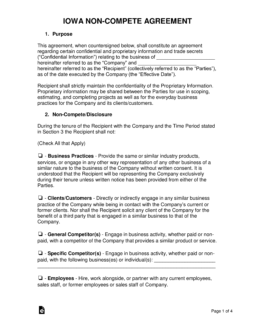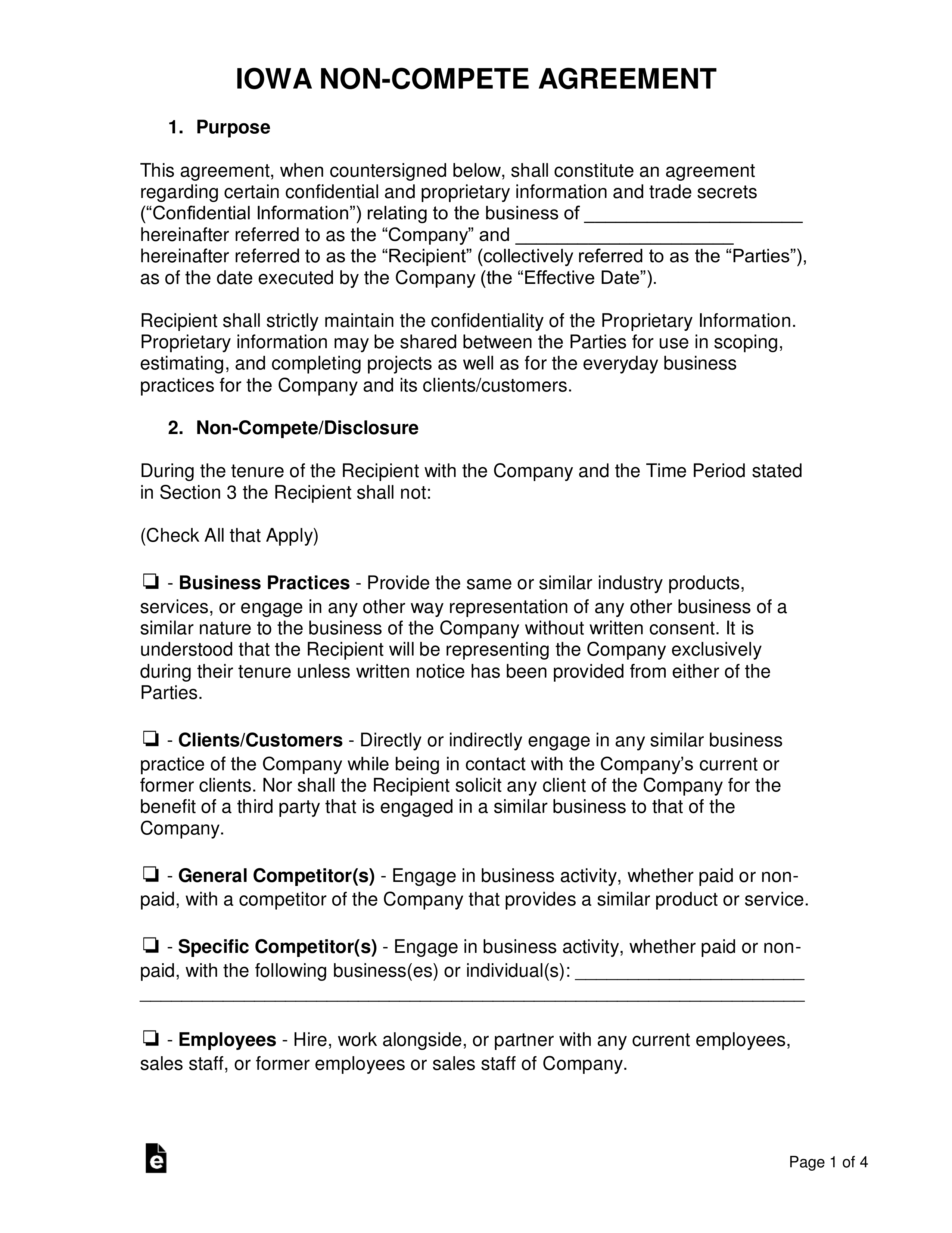Updated February 29, 2024
An Iowa non-compete agreement is a contract that permits an employer to withhold an individual’s right to work in the same industry for the timeframe and geographical area. There are no statutes governing non-competes, although court cases have upheld this business practice. It is recommended that any agreement be no longer than three years and specifically mention the areas where the individual may not conduct their business.
Laws
Legally Enforceable?
Yes, a non-compete is valid if reasonable and passes the three-pronged test.
Three-Pronged Test
A court will decide whether to enforce a non-compete by applying the following:[1]
- If the restriction is reasonably necessary for the protection of the employer’s business;
- If it is unreasonably restrictive of the employee’s rights; and
- Is it prejudicial to the public interest.
Attorneys (prohibited)
An attorney is prohibited from entering into a non-compete agreement that restricts their right to practice law in the State.[2]
Franchisees (unenforceable)
A non-compete is unenforceable on a franchisee if their license to operate has been canceled or not renewed by its operator.[3]
Consideration
In Iowa, no contract can be made without “good and sufficient consideration.” This also includes non-compete agreements.[4]
Continued Employment
For a non-compete, “continued employment for an indefinite period of time is sufficient consideration.”[5]
Maximum Term
3 years is deemed a reasonable timeframe.[6]
Blue Penciling Allowed
Otherwise known as the “partial enforcement doctrine,” a court may not rewrite a non-compete that the parties did not make for themselves. The purpose is to interpret the intentions of both parties, if they are the same, and apply as intended.[7]


